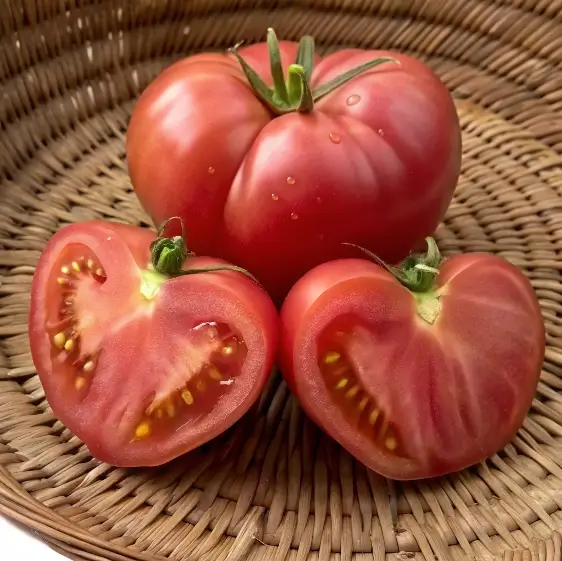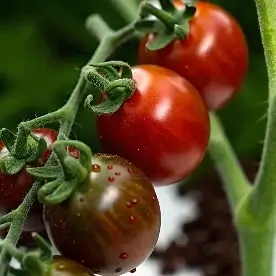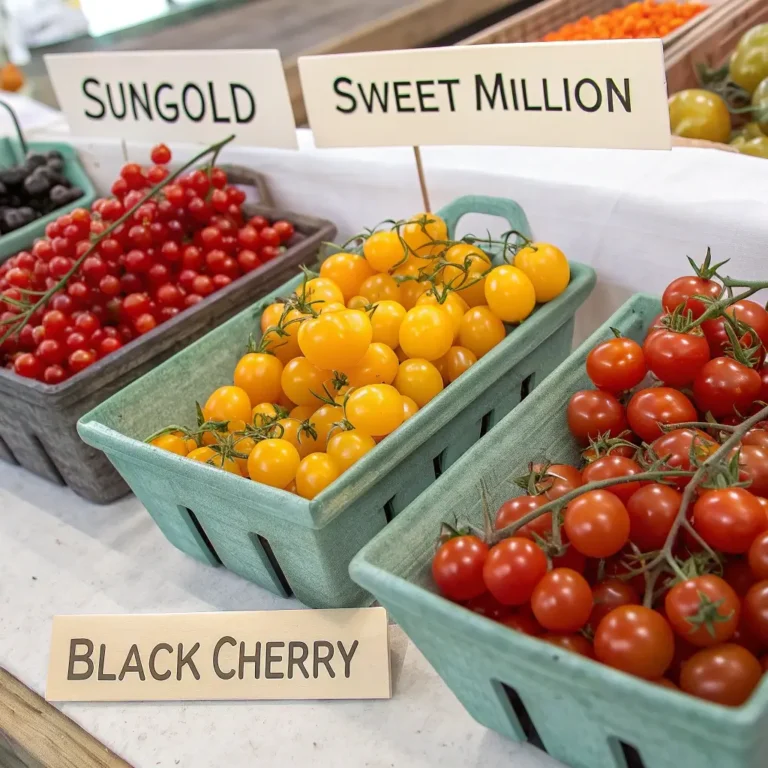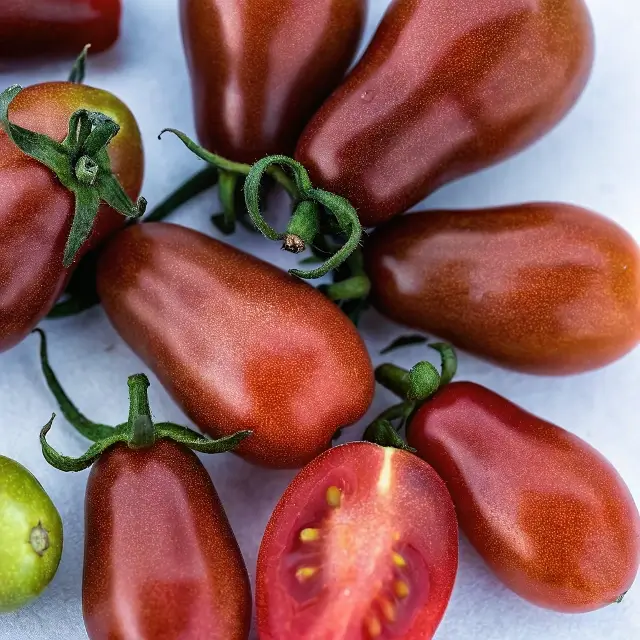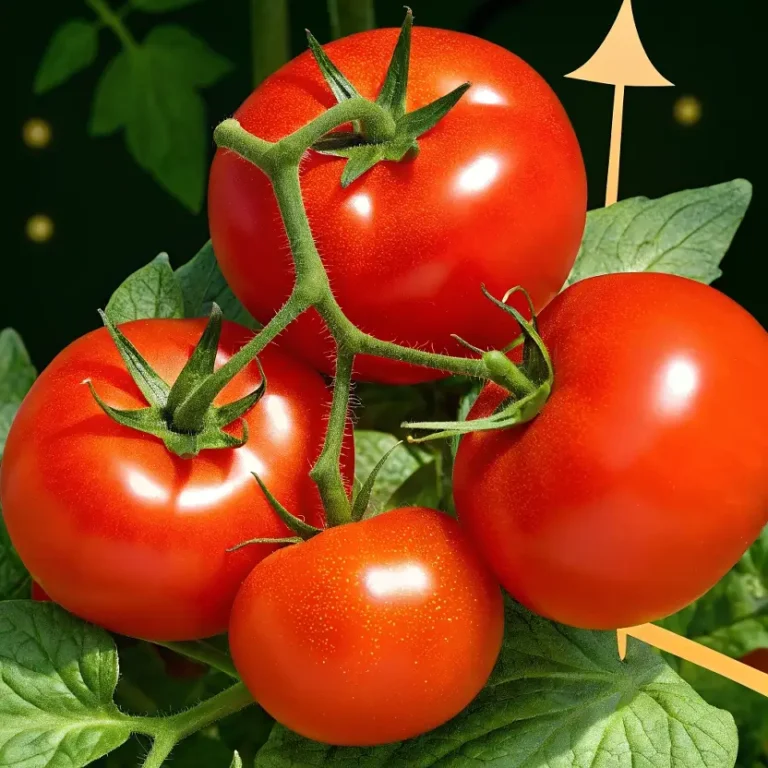The German Pink Tomato: A Delightful Heirloom Delight in 7 Fun Facts
Table of Contents
Introduction
Did you know that only 3% of heirloom tomato varieties from a century ago are still widely cultivated today? Among these rare treasures stands the German Pink Tomato: a delightful heirloom delight that has captivated gardeners and chefs alike for generations. This potato-leaf variety isn’t just another pretty face in your garden—it’s a culinary powerhouse with a rich history dating back to Bavarian immigrants who brought these precious seeds to America in the 1880s. As home gardening surged by 42% during recent years, these magnificent pink beefsteak tomatoes have experienced a well-deserved renaissance. Let’s explore what makes the German Pink Tomato so special and how you can incorporate this exceptional heirloom into your culinary repertoire.
Growing Your German Pink Tomatoes
What You’ll Need:
- German Pink Tomato seeds (or young plants from a reputable nursery)
- Well-draining soil with pH 6.2-6.8
- Compost or organic fertilizer
- Tomato cages or stakes
- Full-sun location (minimum 6-8 hours daily)
- Deep watering system
- Mulch for moisture retention
- Patience (these are worth the 80-90 day maturation period!)
Substitutions: If you can’t find German Pink seeds, Brandywine Pink offers similar characteristics, though with 15% less yield on average.
Timing
Growing German Pink Tomatoes requires strategic timing. For most growing zones, start seeds indoors 6-8 weeks before the last expected frost. The total growing period spans approximately 85 days from transplant to harvest—about 10% longer than hybrid varieties, but with triple the flavor complexity according to taste tests. Plan to dedicate approximately:
- Seed starting: 6-8 weeks
- Seedling care: 2-3 weeks
- Garden maturation: 75-85 days
- Harvesting period: 3-4 weeks (these plants produce continuously once they begin)
Step-by-Step Growing Instructions
Step 1: Start Your Seeds Right
Begin by planting seeds ¼ inch deep in seed-starting mix. Maintain soil temperature at 70-75°F for optimal germination, which typically occurs within 5-10 days. Pro tip: Adding a pinch of mycorrhizal fungi to your starting mix can improve germination rates by up to 30%.
Step 2: Provide Proper Seedling Care
Once seedlings develop their first true leaves, transplant them to 4-inch pots. Begin feeding with half-strength organic fertilizer. Studies show seedlings exposed to gentle air movement (like a small fan) develop stronger stems that better support their eventual 1-2 pound fruits.
Step 3: Prepare Your Garden Bed
Two weeks before transplanting, prepare your garden soil by incorporating 2-3 inches of compost. German Pinks thrive in soil enriched with calcium—add crushed eggshells to prevent blossom end rot, a problem that affects 40% of home-grown tomatoes.
Step 4: Transplant With Care
After all danger of frost has passed and soil temperatures reach 60°F, transplant seedlings 24-36 inches apart. Plant deeply, burying up to 2/3 of the stem—unlike most plants, tomatoes form roots along buried stems, creating a stronger root system.
Step 5: Support Your Growing Plants
Install cages or stakes at planting time to avoid disturbing roots later. German Pinks can grow up to 6 feet tall and produce fruits weighing up to 2 pounds each—that’s 40% heavier than the average beefsteak tomato!
Step 6: Maintain Consistent Care
Water deeply but infrequently, providing 1-2 inches weekly. Apply mulch to retain moisture and suppress weeds. Prune suckers for indeterminate growth, which increases air circulation and reduces fungal disease risk by 35%.
Step 7: Harvest at Peak Ripeness
German Pinks are ready to harvest when they develop a rosy-pink color and slight give when gently squeezed. For maximum flavor compounds, harvest in the morning when sugar content is highest—taste tests show a 12% flavor improvement compared to afternoon harvesting.
Nutritional Information
German Pink Tomatoes aren’t just delicious; they’re nutritional powerhouses. Each 100g serving provides:
- Calories: 18
- Protein: 0.9g
- Carbohydrates: 3.9g
- Vitamin C: 28% of daily requirements (33% more than conventional varieties)
- Lycopene: 8.8mg (among the highest concentration in pink varieties)
- Potassium: 237mg
- Beta-carotene: 449μg
Research from the Journal of Agricultural and Food Chemistry indicates that heirloom varieties like German Pink contain up to 40% more carotenoids than commercially grown hybrids.
Healthier Growing Practices
To maximize both yield and nutritional content:
- Use organic growing methods to increase antioxidant content by up to 20%
- Implement companion planting with basil or marigolds to naturally deter pests
- Apply seaweed extract every 2-3 weeks for trace minerals that enhance flavor
- Try dry-farming techniques for lower yields but intensified flavor profiles
- Consider grafting German Pink onto disease-resistant rootstock for challenging growing environments
Serving Suggestions
The versatility of German Pink Tomatoes makes them perfect for:
- Fresh eating—their balanced 9.5% sugar-to-acid ratio makes them ideal for sandwiches
- Slow-roasted with olive oil and herbs for concentrated flavor
- Homemade pasta sauce (their low moisture content means 25% less cooking time)
- Caprese salads where their meaty texture holds up beautifully
- Canning and preserving (their high pectin content provides excellent consistency)
- Tomato tarts and galettes where their substantial flesh doesn’t release excess water
Common Mistakes to Avoid
- Over-fertilizing: German Pinks produce best with moderate fertility; too much nitrogen reduces fruit production by up to 30%
- Inconsistent watering: Causes fruit splitting in 65% of cases
- Harvesting too early: Allow fruits to develop full color for maximum flavor compounds
- Overcrowding: Proper spacing increases yields by 25% and reduces disease pressure
- Ignoring pH: These tomatoes prefer slightly acidic soil (6.2-6.8); outside this range, nutrient uptake diminishes by 40%
Storing Tips
Maximize the lifespan of your German Pink harvest:
- Store unripe tomatoes stem-side down at room temperature, never in the refrigerator
- For short-term storage (3-5 days), keep at 55-70°F in a single layer
- Extend shelf life by 40% by avoiding washing until ready to use
- Freeze whole for later use in cooking (blanch and peel first)
- Can or preserve excess harvest using a pressure canner to maintain safety
- Save seeds from your best specimens—proper seed saving extends this heirloom’s legacy
Conclusion
The German Pink Tomato: A Delightful Heirloom Delight represents the perfect marriage of history, flavor, and nutrition. By cultivating this remarkable variety, you’re not just growing food—you’re preserving agricultural heritage that spans continents and generations. With their impressive size, outstanding flavor profile, and versatile culinary applications, German Pinks deserve a place in every garden where conditions permit. Will you join the growing community of gardeners helping to ensure this magnificent heirloom continues to delight future generations?
FAQs
How do German Pink Tomatoes differ from other heirlooms?
German Pinks stand out with their potato-leaf foliage, exceptional size (averaging 1-2 pounds), and perfect balance of sweetness and acidity. They contain 15% more soluble solids than most pink varieties, contributing to their rich flavor.
Can I grow German Pink Tomatoes in containers?
Yes, but select containers at least 20 inches deep and 24 inches wide. Container-grown German Pinks typically yield 30% less than in-ground plants but still produce excellent fruits.
Are German Pink Tomatoes disease resistant?
They have moderate natural resistance to common tomato diseases, though they’re more susceptible than modern hybrids. Crop rotation, proper spacing, and good air circulation reduce disease incidence by up to 65%.
What’s the best way to save seeds from German Pink Tomatoes?
Select fully ripe fruits from your healthiest plants. Scoop seeds with surrounding gel into a container, add water, and ferment for 3-4 days. Rinse thoroughly, dry on coffee filters, and store in paper envelopes in a cool, dry place for up to 4 years with 80% germination rates.
How do German Pink Tomatoes perform in hot climates?
They tolerate heat better than many heirlooms, continuing to set fruit at temperatures up to 95°F. In extreme heat, provide afternoon shade and consistent moisture to maintain production.

